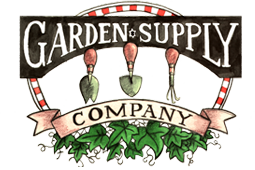Waking up with nature is the best way to begin the day. Who needs the nagging sound of an alarm clock when you could wake with the song of birds foraging in the backyard instead? It doesn't take much to fly these beautiful winged creatures to the yard and if done right, you could attract up to 50 different species for your viewing pleasure. Here's how:
Splash splash. As with any animal, water is a bare necessity for birds. Meet their basic needs and your flighty neighbors will begin to become regular visitors. From birdbaths to ponds and fountains, any source of water will do the trick, although, birds do tend to appreciate water that flows. So you'll do better with a fountain than you will with your typical birdbath. If you do use a birdbath where the water stagnates, just be sure to clean it regularly and replace the water as well to prevent disease.
Ripe for the pecking. Naturally, birds are attracted to native shrubs, flowers and trees that they can glean for food. So by adding indigenous plants to your landscape that are plentiful in seeds and berries, you'll begin to feed the birds. Another interesting fact is that most baby birds need insects to survive (even those that in adulthood become vegetarian) but the insects you find in your backyard also thrive off of native flora and don't fare so well with nonnative vegetation. So take your yard back to its roots with the natives the NC Audubon suggests planting below.
Larval host plants
Spicebush
Native plums
Oaks
Wild indigos
Native blueberries
Pawpaw
River oats
Berry-producing plants
Flowering dogwood
Winterberry holly
American beautyberry
Black cherry
Viburnums
Red chokeberry
Black gum
Seed/nut-producing plants
Maples
Purple coneflower
Swamp sunflower
Joe-Pye weed
Bluestem
Black-eyed Susan
Shortleaf pine
Virginia pine
Nectar-producing plants
Wild bergamot
Bee balm
Cardinal flower
Ironweed
Buttonbush
Sweet pepperbush
Stokes aster
Red buckeye
Feed the birds. Like us humans, birds appreciate dining out every once and a while. So add some black oil sunflower seed to your feeder or put suet cakes out somewhere close to a window and see who swings by to sing you a little song.
Gimme shelter. Be sure to place your birdhouses and feeders somewhere among the trees where birds will feel protected but far enough away that snakes and squirrels won't lurk close by. Feeders out in the open leave birds susceptible to predators and may deter them from visiting your pitstop. Adding trees and shrubs to the yard is another natural way to provide shelter and a place to roost for your feathered friends.
Looking for birdseed, suet, birdbaths, fountains, bird books, native plants and more? Visit GSCO. We have it all!

